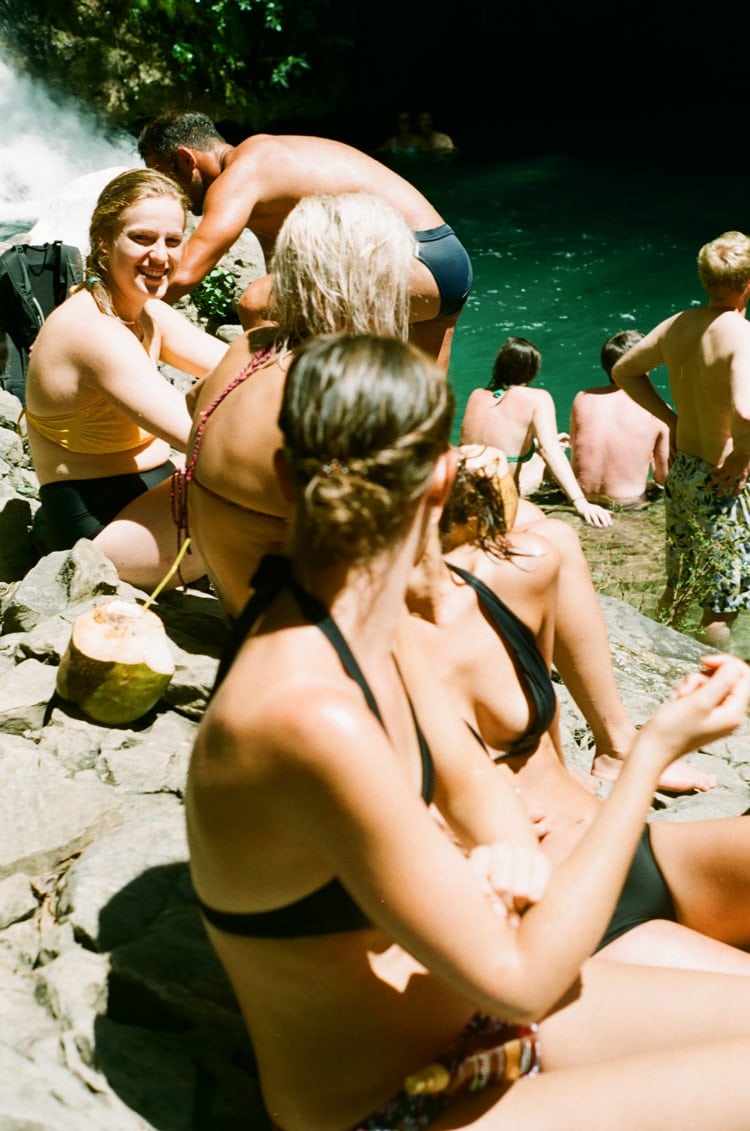
Opinion
Who’s going to design our future communities?
By Sofia Gallarate
Home is where the heart is, they say. These days, when living in metropoles, home is also where you and your fellow cohabitants feel a sense of belonging and fulfilment.
Is it too much to ask for? The team behind The Collective doesn’t think so, and it’s in these premises that it has been rethinking the way our living spaces are designed and eventually lived in. Aware of the socio-economic challenges posed by today’s big cities, The Collective believes that people need to feel empowered by the community that surrounds them and the space they live in, and that this can only be reached by challenging the status-quo of what it means to inhabit a house. How does it challenge it? By building innovative environments where new forms of co-living and cooperation flourish.
It is certainly not an easy task to design human-scaled, community-based, affordable spaces that are welcoming to the 21st-century global citizen. Urban spaces are getting more crowded by the minute, and yet city dwellers still feel this sense of alienation that is wildly spreading among residents. To respond to the challenges posed by estranging urban designs, The Collective is not only offering co-living spaces, but also pushes the boundaries of what it means to live together, thus fostering in-house experiences conducive to wellbeing, sociability, and co-working.
In the eyes of The Collective, it doesn’t matter whether someone moves into its co-living locations for a short period of time or for good. If new residents feel that they are surrounded by an environment that promotes conviviality while maintaining privacy and safety, everyone could feel at home.
The Collective doesn’t only offer a place to call home, but also builds a platform where members may form a network through which they can develop both personal and professional relationships with like-minded people.
Talking to Screen Shot about the way The Collective brings people together, head of events and experiential marketing Jade Coles said, “We see our cultural programme across our buildings as a real, tangible way of showcasing our core brand values ‘be more together’. Each of our buildings has slightly different personalities, and in fact, our buildings’ personalities even change over time due to those occupying the space or according to our aesthetic modifications, because of that different types of events can be popular”. It’s in the attempt to shape a way of co-living which responds to the needs of today’s large cities’ residents that The Collective is encouraging networking between local communities and compatible businesses.
“Collaboration is very much a brand value of ours and we enjoy working with new and start-up brands, as well as emerging artists and makers. Some of the collaborations we are most excited about this year include a very special audio project with University of the Arts sound design students, who are creating a number of bespoke soundscapes that will play in our lifts throughout autumn and winter. These are inspired by some specially commissioned artworks for the building”, shared Coles.
Each location offers a cultural events programme tailored to the different spaces—from music gigs and ring-making to coding bootcamp—all of which can be joined by residents. The Collective’s recent partnership with Fever (the mobile app and social discovery tool that offers a curated list of local events to its users) allows residents to attend the series of Fever events organised, often free of charge. Line-ups include workshops of all types, workout classes, talks, and panel discussions to help members pursue new activities while connecting with other members, all of this without having to leave the comfort of their home. “One of our key event strands that have gone strength to strength is called ‘Self Care Sundays’ and that happens each and every Sunday after ‘brunch’ which is a free collaborative meal we host for anyone in the building. ‘Self Care Sundays’ are all about learning how to give back to yourself in some more traditional ways, but also in ways that aim to push members out of their comfort zone or consider new ideas”.
Leisure activities aside, The Collective buildings are places where personal growth goes hand in hand with a professional one. By promoting a collaborative economy facilitated by co-working spaces, the company intends to push the careers of its tenants through events and workshops, made possible by allowing co-working spaces—whether private offices or hot desks—to be accessed at any time, 24 hours a day, seven days a week.
In a time when metropoles are struggling with a lack of affordable housing, environmentally friendly options, and social resources, The Collective is making sure that behind its design model, there is a sustainability that reaches above and beyond their buildings. Through its non-profit branch The Collective Foundation, the company promotes economic opportunity, social integration, and environmental sustainability by supporting projects that involve the neighbourhoods and cities they are based in.
All the initiatives endorsed by The Collective within its co-living locations have been paving the way for a new mode of thinking focused on what ‘home’ means to us, while also challenging something even bigger: how we intend to design the community of the future, our cities, and how we could live, quite literally, under the same roof in innovative and forward-looking ways.
This is the second article of a three-part series looking at co-living and what the future of this new trend will hold. Part three will soon be published on Screen Shot online.




